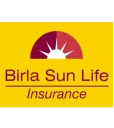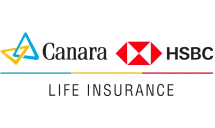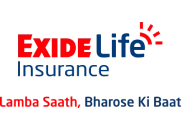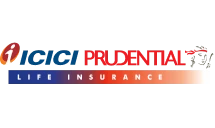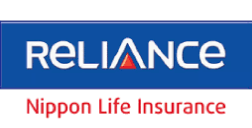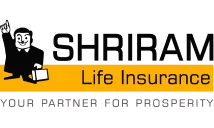Why Choose Turtlemint

Unbiased Advice
From Experts Near You

40 Lakh+
Customers

Hassle-Free
Claim Assistance

Easy Policy
Renewal
Join India’s largest advisor network


Make Your Claim Settlement Process Hassle Free
Lets understand how Turtlemint helps you on all the steps of your claim process

Easiest Way of Selecting a Perfect Insurance Plan
Use Turtlemint to choose the insurance plan for all your needs
Manage All Policies In One Place
Manage All Policies In One Place
- All policies, one app
Find and save all your policies, get reminders, track claims on your fingertips - Claim any policy
Get quick claims support from our experts for any policy, any insurer - All policies explained
Understand the features of your policies for complete risk protection - Consult an expert
Consult one of our 3.3 lakh+ advisors/POSPs on your insurance
Our Customers Love Us
To stay updated with the latest events and happenings in the insurance business, check out our blogs.
Frequently Asked Questions
New user? Let’s get started with these basics.
IRDA stands for the Insurance Regulatory and development Authority. It is the apex regulatory body of insurance in India. All insurance companies have to comply with the rules prescribed by the IRDA for selling their insurance policies.
No, if the insurance policies are bought from reputed websites which are under the regulations of the IRDA, the policies would be genuine and would be issued by the insurance company directly.
No, insurance policies have a list of excluded coverage benefits which are not covered under the plan. These exclusions depend on the type of insurance policy.
The coverage level of your insurance policies should be optimum to cover the financial loss which is insured by the policy. In life and health insurance plans, the coverage level should be chosen based on the lifestyle expenses of the insured, the family size, age, income, etc. In case of car and bike insurance policies, the coverage depends on the value of the car and bike.
General insurance policies pay a claim on the principle of indemnity. Indemnity means that in case of a loss the policyholder would be compensated by the insurance company for the actual financial loss suffered. The policyholder would not be allowed to make a profit from the insurance policy.
An insurance contract is a contract of utmost good faith. As per this principle, the policyholder is required to furnish all the important details about himself which are asked in the proposal form. The insurance company issues the policy on the good faith that the insured has provided every information in the proposal form correctly. If any important information, which affects the risk covered under the policy, is hidden or lied about, the principle of utmost good faith is breached. In such cases, the insurance contract becomes void and the insurance company has the right to reject the claim under the policy.
A group insurance policy is one in which a group of individuals are covered under the same plan. A single insurance policy is issued covering all the members of the group and the policy is called a master policy. Group insurance plans usually come with a term of one year after which they have to be renewed for continued coverage.
If the insurance policy is cancelled during the free-look period, the premium paid is refunded back. However, the premium refund would be deducted for the administrative expenses incurred by the insurance company in issuing the insurance policy. Moreover, the insurance cost would also be deducted for the period the policy was in force before it was cancelled.
Yes, insurance policies allow a free-look period for cancellation of the policy after it has been bought. The period depends on the type of policy bought and the insurance company.
Yes, life and health insurance plans provide tax benefits. These benefits are explained below –
Life insurance plans –
- Premiums paid for life insurance policies qualify for tax deduction under Section 80C upto a limit of INR 1.5 lakhs
- Surrender benefit, maturity benefit or death benefit received under life insurance plans are tax-free under Section 10 (10D)
- 1/3rd of the pension corpus which is withdrawn in cash is tax-free under Section 10 (10A)
Health insurance plans
- Premiums paid for a health insurance plan for self, spouse and dependent children is allowed as a tax deduction under Section 80D. The limit is INR 25, 000. If you are a senior citizen, the limit increases to INR 50, 000
- Premiums paid for health insurance plan for dependent parents earns an additional tax deduction under Section 80D. This limit is also INR 25, 000 which increases to INR 50, 000 if the parents are senior citizens.
Health insurance plans come in the following variants –
- Indemnity health plans – individual health plans and family floater health plans
- Senior citizen health plans
- Critical illness health plans
- Disease specific health plans
- Hospital cash health plans
- Top up and super top-up health plans
Life insurance plans come in the following variants –
- Term life plans
- Endowment plans
- Money back plans
- Whole life plans
- Child plans
- Unit linked insurance plans
- Pension plans
Premiums can be paid through cash, cheque, debit cards, credit cards, net banking facilities and also mobile wallets.
If the insurance policy is not renewed within the due date, the policy cover would lapse as soon as the due date is over. When the policy lapses, the cover stops. If any claim is made in a lapsed policy, it is rejected as the coverage under the policy has stopped due to non-renewal.
Renewal of an insurance policy should be done within the policy expiry date (also called the policy due date). If it is done within the due date, the policy continues without a break in coverage.
Insurance policies come with a specified tenure. When the tenure is over, the cover provided by the policy stops. To continue the coverage, the policy is required to be renewed. Thus, renewal of an insurance policy means continuing the coverage of the policy for an additional tenure by paying the required renewal premium to the insurance company.
Yes, insurance claims can be rejected due to various reasons. Some common ones include the following –
- If the claim is for an instance which is excluded under the plan’s coverage
- If the claim process is not properly followed
- If the claim is made in a policy which is lapsed
- If the claim related documents are not submitted to the insurance company
A claim is said to occur when the insured event happens and the insurance company becomes liable to pay the compensation for the financial loss suffered by the insured.
There are a lot of insurance policies available in the market each of which satisfy similar needs and yet have different coverage benefits and premium rates. The best insurance policy which provides the best coverage features at the lowest premium rates can be found only when the different plans are compared with each other. That is why comparing is necessary before buying insurance policies.
Insurance policies can be purchased online after comparing the different policies and then choosing the best one. After the policy is chosen you need to fill an online proposal form, submit the required documents and pay the premium online and the policy is issued.
Different insurance plans have a different coverage tenure. The tenures of various plans include the following –
- Life insurance – 5 years to 35 years
- Health insurance – 1 year to 3 years
- Bike insurance – third party plans – 1 year to 5 years; comprehensive plans – 1 year to 3 years or 5 years
- Car insurance – third party plans – 1 year to 3 years, comprehensive plans – 1 year or 3 years
Premium is the cost of insurance. It is the money which you undertake to pay to the insurance company in return for the coverage which the company provides.
Life insurance plans cover the risk of dying too early. Health insurance plans, on the other hand, cover the risk of medical contingencies. While life insurance plans pay a benefit in case of death or maturity, health insurance plans pay a benefit if the insured suffers a medical contingency which is covered by the plan.
An insurance policy protects you against financial losses. As such, the policy becomes necessary. If you have a car or a bike, buying a motor insurance policy is mandatory as per law. Even in case of life insurance, the security given by a life insurance policy is unparalleled which makes the policy a must buy. When it comes to health insurance, one cannot ignore the high medical costs which are associated with a health ailment. Having a health insurance policy, therefore, makes sense to protect against the financial implication of any medical emergency.



































